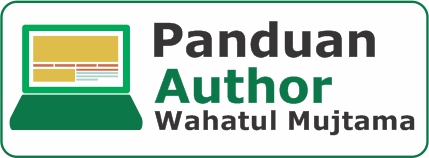Satu Desa, Seribu Hikmah: Catatan Perjalanan KKN di Desa Samangki
One Village, a Thousand Wisdoms: Notes on a KKN Journey in Samangki Village
DOI:
https://doi.org/10.36701/wahatul.v6i1.2232Keywords:
KKN, STIBA Makassar, Religious Activities, SamangkiAbstract
The Community Service Program (KKN) is designed to bridge the gap between academic knowledge and the complexities of real-world social dynamics. Through this program, students are not only expected to apply theoretical and scientific concepts but are also trained to adapt, communicate, and collaborate with various segments of society. The primary aim is to enhance students' capacity for learning alongside communities, especially in remote and underdeveloped areas, by applying Islamic knowledge in an integrative manner, as implemented in Samangki Village, Simbang District, Maros Regency. The adopted model is Integrated Community Service, a method that combines academic learning with direct community empowerment practices. The results of the program showed a significant increase in community enthusiasm and participation in various activities, including leading congregational prayers (rawatib and tarawih), delivering religious talks and Ramadan sermons, teaching at children's Qur'anic schools (TKA/TPA), organizing workshops, giving Friday sermons, and conducting social initiatives such as distributing iftar meals and basic food packages, holding children's religious festivals, cupping therapy education, and running short-term Islamic boarding schools (pesantren kilat). All of these programs were successfully implemented and achieved a 100% success rate. The implication of this program is that integrative KKN has proven effective in strengthening the religious and social capacities of the community. Moving forward, program effectiveness can be enhanced through closer collaboration with village authorities, improved infrastructure access, and active support from community leaders.
Downloads
References
Aqbar, Khaerul, Muhammad Kasim, and Azwar Azwar. “Penguatan Keberagamaan Masyarakat Desa Bonto Bunga Kecamatan Moncongloe Kabupaten Maros.” WAHATUL MUJTAMA’: Jurnal Pengabdian Masyarakat 4, no. 1 (2023): 66–76.
Bakry, Kasman, and M Kasim. “Ramadan Mengaji Dan Tebar Iftar: Inovasi Program KKN STIBA Makassar Dalam Menghidupkan Bulan Suci Di Desa Allaere.” WAHATUL MUJTAMA’: Jurnal Pengabdian Masyarakat 5, no. 2 (2024): 217–28.
Cahyani, Apreriri, Tuti Nurhaningsih, Netti Karnati, and Desi Rahmawati. “Kuliah Kerja Nyata Sebagai Implementasi Pendidikan Berbasis Masyarakat Di Perguruan Tinggi.” Jurnal Kajian Dan Penelitian Umum 2, no. 2 (2024): 19–29.
Lambajo, Sartini, and Akhmad Hanafi Dain Yunta. “Mewujudkan Masyarakat Qur’ani Melalui Program KKN STIBA Makassar Di Desa Kalabbirang Kabupaten Maros.” WAHATUL MUJTAMA’: Jurnal Pengabdian Masyarakat 1, no. 2 (2020): 157–73.
Patuti, Asnawati, and Rahmat Rahmat. “Pelaksanaan Program Pendekatan Keagamaan Melalui KKN STIBA Makassar Di Desa Baruga Kabupaten Maros.” WAHATUL MUJTAMA’: Jurnal Pengabdian Masyarakat 1, no. 2 (2020): 185–99.
Sam, Zulfiah, and Ahmad Syaripudin. “Khidmat Mahasiswi KKN STIBA Makassar Melalui Kegiatan Keagamaan Pada Masyarakat Kelurahan Biring Romang Kecamatan Manggala Kota Makassar.” WAHATUL MUJTAMA’: Jurnal Pengabdian Masyarakat 3, no. 2 (2022): 201–13.
Sirajuddin, Sirajuddin, and Muhammad Muhammad. “Meningkatkan Kualitas Hidup Masyarakat Melalui Pembinaan Keagamaan: Program Pengabdian Komprehensif Di Desa Lekopancing.” WAHATUL MUJTAMA’: Jurnal Pengabdian Masyarakat 5, no. 1 (2024): 117–34.












